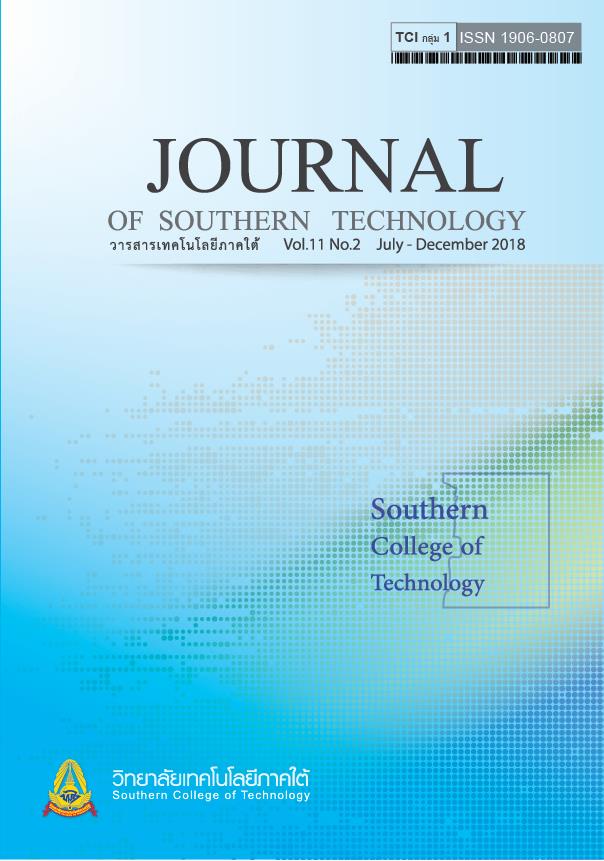The Synthesis on Strategic Development Model to be a Learning Organization
Main Article Content
Abstract
This research is aimed to synthesize and present the learning organization Strategic Development Model of Rajabhat Universities Rattanakosin group. The study’s conceptual framework is grounded on the integration of philosophy science and managerial science. The process of study is concentrated on analyzing the set of data of learning capability components and key success factors of organization, together with the foresight scenario development and strategy options for systemic learning of organization. The results shown that model developed would enhance organization; 1) to understand and has a capability to identify the social dynamic environments, describing the relationship of capability components with its and key success factors in regarding to adaptive learning of organization, 2) to upscale organization’s knowledge capital that lead to improve their innovative learning, with both logical and normative organization identity development, and 3) to provision organization’s paradigm and strategy options, in regarding to enhance learning mechanism of change, and hence lead to support social knowledge capital in moving towards knowledge-based society in 21st century.
Article Details
-
Authors must agree to the journal publication rules and allow the editors to edit the manuscripts for publication.
-
Author’s right belongs to the author but Journal of Southern Technology holds the right of first publication and thus allow readers to use the article for the purpose of education but not commercial.
References
Brown, D. R., & Harvey, D. F. (2006). An Experimental Approach to Organization Development. (7th ed.). Upper Saddle River, NJ: Prentice Hall.
Capra, F. (1975). The Tao of Physics: An Exploration of the Parallels between Modern Physics and Eastern Mysticism. Berkeley: Shambhala.
Daft, R. L. (2008). Organization Theory and Design. (10th ed). Mason, OH: Thomson South-Western.
Darling-Hammond, L. (2006). Powerful Teacher Education: Lessons from Exemplary Programs. San Francisco: Jossey-Bass.
Forrester, J. W. (1968). Principles of Systems: Text and Workbook. Cambridge: Wright-Allen.
Garvin, D. A. (1993). Building a Learning Organization. Boston, MA: Harvard Business School.
Hatch, T. (1998). How community action contributes to achievement. Educational Leadership, 55, 16-19.
Hoy, W. K., & Miskel, C. G. (2001). Educational Administration: Theory, Research, and Practice. (6th ed.). Boston: McGraw Hill.
Labahn, J. (1995). Education and Parental Involvement in Secondary Schools: Problems, Solutions, and Effects. Educational Psychology Interactive. Valdosta, GA: Valdosta State University.
Lassey, P. (1998). Developing a Learning Organization. London: Kogan Page.
Marquardt, M. J., & Reynolds, A. (1994). The Global Learning Organization. New York, IRWIN.
Morrison, K. (2009). Educational innovation in Thailand: A case study. International Education, 38, 2, 29-55.
OECD. (2008). 21st Century Learning: Research, Innovation and Policy Directions from Recent OECD Analyses, OECD, Paris.
Overman, S. (1999). Gearing up tomorrow’s workforce. HR Focus, 76, 14-18.
Pellegrino, J. W., & Hilton, M. (Eds.). (2012). Education for Life and Work: Developing Transferable Knowledge and Skills in the 21st century. Washington, DC: National Academies Press. Retrieved from https://www.nap.edu/catalog/13398/education-for-life-and-work-developingtransferable-knowledge-and-skills
Schwartz, P. (2003). Inevitable Surprises: Thinking Ahead in a Time of Turbulence. New York: Gotham Books.
Senge, P. M. (1990). The Fifth Discipline: The Art & Practice of the Learning Organization. London: Century Business.
Trilling, B., & Fadel, C. (2009). 21st Century Skills Learning for Life in Our Times. San Francisco. CA: Jossey-Bass, 2009. Printing.
UNEP. (2011). Towards a Green Economy: Pathways to Sustainable Development and Poverty Eradication. Available at: https://web.unep.org/greeneconomy/sites/unep.org.greeneconomy/files/field/image/green_economyreport_final_dec2011.pdf
UNESCO. (1998). World Declaration on Higher Education for the Twenty-First Century: Vision and Action, World Conference on Higher Education (WCHE, 1998). Paris, October 9.
_______. (2012). National Journeys towards Education for Sustainable Development 2012 Paris, UNESCO.
Van, H. K. (1996). Scenarios: The Art of Strategic Conversation. Chichester, England: John Wiley & Sons.
World Trade Organization. (2011). Harnessing trade for sustainable development and a green economy. Available at:
https://www.wto.org/english/res_e/publications_e/brochure_rio_20_e.pdf.
Udom, C., Sachdev, H., Butchiwan, P., Paiboonrattananon, N., & Damnoen, Ph. (2018). Scenario and alternative strategy for enhancement learning organization. Local Administration Journal, 11(1), 95-107.
[in Thai]

